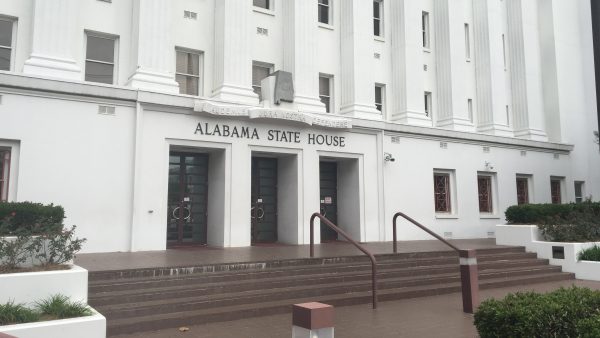Hungarians declare resistance to Orbán’s government with a large protest
BUDAPEST, Hungary — Around 15,000 protesters filled a square in Hungary’s capital Tuesday in what organizers called the beginning of a resistance movement against the government of populist Prime Minister Viktor Orbán.
Nearly two dozen public figures including writers, actors, musicians and journalists joined the demonstration in Budapest. Most of the speakers criticized what they see as the government’s increasingly anti-democratic conduct. Some alleged corruption benefiting those with ties to Orbán’s Fidesz party.
“This country doesn’t belong to those who lie, who rob from the people, who have sold their humanity for power,” said one speaker, Csaba Bogos. “This country belongs to those who dare to think, who can read between the lines, who trust in themselves and each other, and believe that there is a common, peaceful future that we must build together.”
It was the latest anti-government protest since Orbán’s party pushed through a law in March, and a constitutional amendment the following month, that effectively banned public LGBTQ+ events.
That law also allowed for authorities to use facial recognition technology to identify and fine participants in prohibited assemblies. It drew allegations that Orbán was leading the country toward a full autocracy similar to Russia under President Vladimir Putin.
As national elections approach in 2026 and Orbán’s party trails in most polls to a new opposition challenger, the Hungarian leader’s detractors say he has turned to more authoritarian tactics to silence critics.
Speakers at Tuesday’s demonstration warned that a recent draft bill that would allow the government to blacklist critical media organizations and NGOs would mean the end of independent journalism and civic engagement.
That bill would allow the government to monitor, restrict, penalize and potentially ban organizations it deems a threat to Hungary’s national sovereignty. Its passage was recently delayed until parliament’s autumn session.
Some 80 leading news outlets across Europe signed a petition urging the bill to be revoked, and the European Union’s executive committee said it would breach EU laws and fundamental values.
Demonstrator Dániel Szabó said the law was not aimed at protecting Hungary’s sovereignty, but designed to consolidate power for the governing party.
“We clearly have the situation where the government is trying to silence the opposition,” Szabó said. “The possibility for any kind of normal coexistence or the possibility for consensus is attacked now from every direction.”
Dénes Sallai, a popular musician and rapper, told the crowd he sees signs that longtime support for Orbán and his party was waning.
“The majority of people are fed up with the actions of this regime, and there appears to be a real chance that next year, after 16 years, Fidesz won’t be the one to form a government,” he said.
The U.S. men’s hockey team to face Slovakia for a spot in an Olympic gold medal match
After an overtime nailbiter in the quarterfinals, the Americans return to the ice Friday in Milan to face the upstart Slovakia for a chance to play Canada in Sunday's Olympic gold medal game.
NASA eyes March 6 to launch 4 astronauts to the moon on Artemis II mission
The four astronauts heading to the moon for the lunar fly-by are the first humans to venture there since 1972. The ten-day mission will travel more than 600,000 miles.
Supreme Court strikes down Trump’s tariffs
The 6-3 ruling is a major blow to the president's signature economic policy.
The economy slowed in the last 3 months of the year — but was still solid in 2025
The U.S. economy grew 2.2% in 2025, a modest slowdown from 2.4% the previous year. GDP gains were fueled by solid consumer spending and business investment.
Ali Akbar, who’s sold newspapers on the streets of Paris for 50 years, is now a knight
For decades, Ali Akbar has sold papers on the Left Bank of Paris. Last month, France gave the beloved 73-year-old immigrant from Pakistan one of its highest honors — and his neighborhood is cheering.
Bill limiting environmental regulations goes to the governor’s desk
President Trump has taken steps to roll back environmental regulations. Some of that same action is taking place in statehouses, including Alabama's. Lawmakers gave final passage this week to a bill that would ban the state from enacting environmental rules more stringent than those at the federal level. That's where we start our weekly legislative update with Todd Stacy, host of Capitol Journal on Alabama Public Television.






